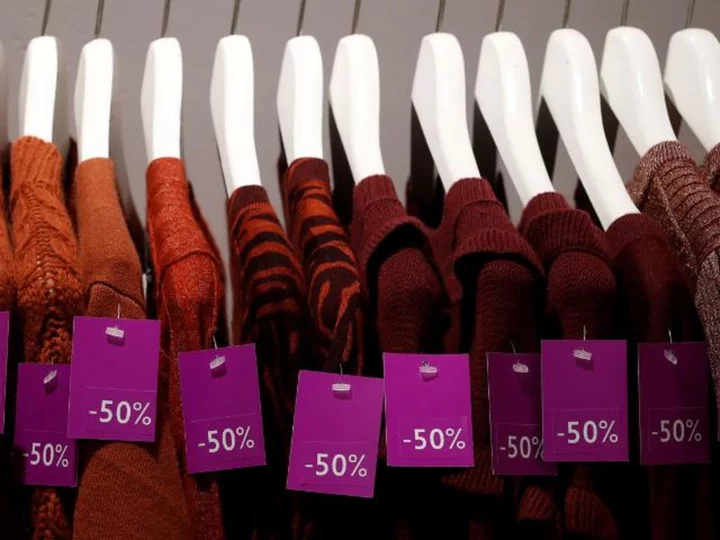France is to introduce a scheme that will subsidize repairs to clothing and shoes in order to cut waste and planet-heating pollution from the textile industry.
Under the scheme, which was announced by secretary of state for ecology Bérangère Couillard Tuesday, discounts varying from €6 ($7) to €25 ($28) will be available depending on the complexity of the repair.
For instance, a simple piece of restitching will receive a €6 subsidy, while resoling a pair of shows will qualify for a €25 rebate.
"It could encourage exactly the people who have bought, for example, shoes from a brand that makes good-quality shoes or likewise good-quality ready-to-wear to want to have them fixed instead of getting rid of them," Couillard said at a news conference.
"And that is exactly the objective, to create a circular economy for shoes and textiles so that products last longer, because in government we believe in the second life of a product."
Couillard said the textile industry was on course to account for a quarter of global greenhouse gas emissions by 2050, the second most polluting industry in the world.
"What I hope is that the French will become aware of what we can see, that is the impact of the textile industry across the world today," she said. "So they can themselves realize the aberration of the way in which we now consume."
The ministry of ecology has instructed a French private organization called Refashion to start the scheme.
Tailors, clothes brands and repair shops can join the initiative for free via Refashion, which will collect a small "eco-contribution" on sales to cover the subsidy. The government will not fund the scheme, which is scheduled to start in October.
For customers, the subsidy will be taken straight off their bill. Refashion will then arrange for the companies signed up to the scheme to be refunded within 15 days.
Refashion says 3.3 billion pieces of clothing, shoes and household linen were put on the market in France in 2022 and, according to the ministry, 700,000 tons of clothes are thrown away by French people each year, two-thirds of which ends up in landfills.
The scheme follows a similar French initiative for white goods such as fridges and washing machines.









